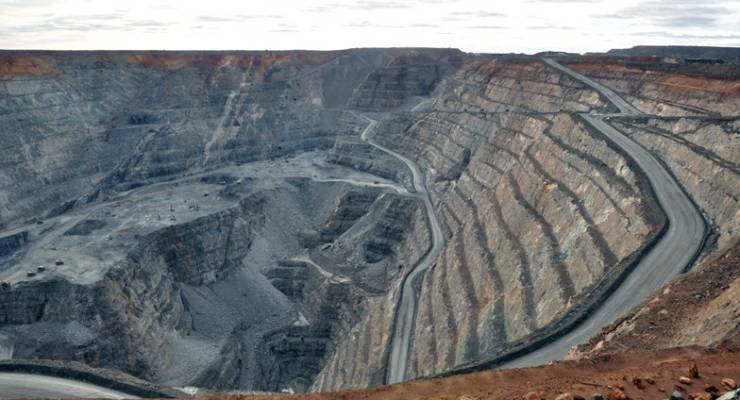
In another sign that the age of neoliberal economics is ending, developing countries are going after mining giants, no longer in fear that they’ll be punished by markets. In a remarkable contrast to eight years ago, when major mining companies helped drive an Australian Prime Minister from office amid cries of “sovereign risk”, large mining companies are having to swallow their pride as governments of developing countries target them.
Bloomberg recently collected a number of examples where mining multinationals had to buckle to local governments, including US mining company Freeport, which was recently forced to sell a majority stake in its massive Papuan copper and gold mine to Indonesian investors. Significantly, the list includes another clash between Zambia and one of the world’s worst tax dodgers, Glencore, which in 2011 was revealed to be rorting the Zambian tax system of more than US$100 million a year through transfer pricing. The Australian mining industry had repeatedly held up Zambia as a model for Australia in relation to taxation of mining companies. In August, the Glencore-owned Zambian subsidiary refused to pay higher electricity prices and threatened to fire nearly 5,000 workers, but recently caved in and agreed to pay more.
Until recently, such behaviour from a developing country government would have incurred the wrath of markets and mining industry analysts like the far-right Fraser Institute of Canada. Now, however, in the words of one analyst “we’re seeing the rise of more nationalistic governments everywhere.”
That of course includes the Australian government, which has been engaged in a shameless attempt to de facto nationalise the assets of a power company that has incurred its wrath, while imposing a domestic gas reservation policy.
Speaking of which, Crikey was tickled by Chris Bowen yesterday pointing out Josh Frydenberg yesterday claimed that Labor had never had a domestic gas reservation policy after attacking Labor’s domestic gas reservation policy in 2016. In fact, if you check Frydenberg’s 2016 speech, it now looks deeply ironic for a government that in June gave itself the power to reserve gas for domestic use:
…just two weeks ago we saw Chris Bowen and the head of the Australian Workers Union launch a gas reservation policy. We know that such a policy would be disastrous. It will kill investment, destroy jobs and ultimately lead to less gas supply.Those in this room will know that gas reservation policies have been ridiculed by the last two Labor energy ministers with Martin Ferguson describing it as an “investment killer” and Gary Gray explicitly stating that “a reservation policy could not lead to lower gas prices or more gas.” Labor’s policy flies in the face of the ACCC’s explicit recommendation that gas reservation policies should not be introduced, given their likely detrimental effect on already uncertain supply.No one should be fooled by Chris Bowen when he tries to differentiate between a national interest test and a gas reservation policy. The ACCC couldn’t have been clearer when it stated in its report that gas reservation policies include “export controls…such as a national interest test”.








As much as its an overused phrase, sovereign risk in developing countries is very real. Investment into South Africa has dried up because of the constant tinkering with mining rules and expropriation of material %s of their legally acquired project assets.
Countries like South Africa have been used and abused by big mining companies too. Sovereign risk also means losing your own sovereignty to corporations.
Look at what happens when countries try to maintain ownership/sovereignty over their assets.
Mosaddegh springs to mind but he only pissed off the UK & the US.